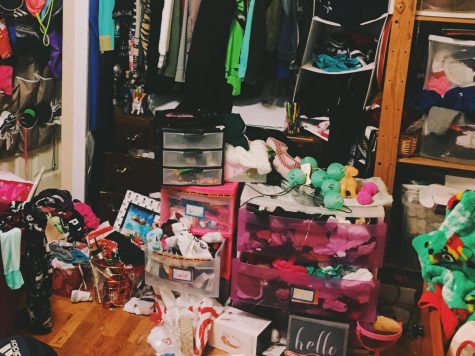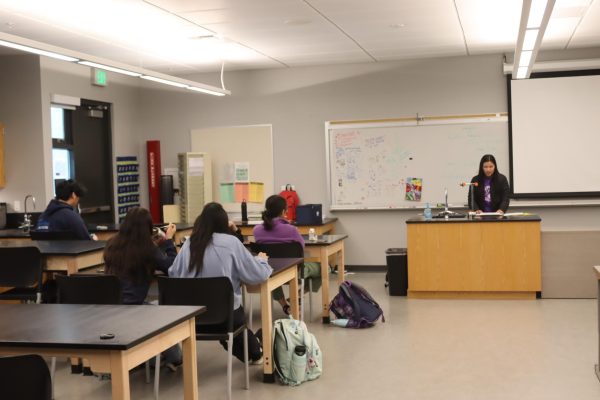Messiness is the new objective
The cleanliness of one’s workspace can allude to one’s creativity
If scrambling to find last night’s homework assignment in a sea of old crumpled paper seems familiar, or it has become normal to have a room that looks like a tornado has just passed through it, then one might consider themselves a student hoarder.
Since the beginning of a student’s school career, they are told by teachers that good organization is the key to success.
While some teachers may recommend more traditional organization methods, such as binders or the school planners, many students find this approach to not be a sustainable system in the long term.
Hoarding past assignments can increase the overall clutter in a teenager’s room. Students might excuse their stockpiling with a range of explanations or rather excuses, from lack of organizational skills to high stress levels.

When five students on campus of varying grade levels were asked what caused their room’s current condition, the consensus amounted to lack of time while managing school and extracurriculars.
In some cases, messy work spaces are interpreted as a more methodical form of organization for an individual. While some people’s work spaces can seem chaotic from the outside perspective, these students are personally aware of the location of all of their items.
Psychological scientist Kathleen Vohs, from the University of Minnesota, found scientific evidence that proved messy rooms can provoke more creative thinking, according to Elite Daily.
[Vohs’] study conducted a series of trials while incorporating a paradigm consisting of one messy room and one tidy room, according to Elite Daily.
Creative or unconventional reasoning can be seen in many forms. For example, one’s wardrobe may not always remain in its designated place within a closet.
“When I get home from school, I undress and put on my comfortable clothes,” sophomore Devin Fan said. “All my other clothes I throw on the floor,”
By Vohs’ logic, throwing clothes on the floor as oppose to the hamper a few feet away can be an indicator for creative reasoning, even if it may be considered unconventional to others.
Some of history’s greatest minds like Mark Twain and Albert Einstein were notorious for having cluttered work spaces. The earliest documentation of Einstein’s opinions on the topic can be found in the Quotations of our Time by Lauren J. Peter.
“If a cluttered desk is a sign of a cluttered mind, then what are we to think of an empty desk?” Einstein said.
Clutter may serve as a great tool to inspire unconventional ideas for some, but for others, the boundaries of organization keep them focused. In the end, one can use whichever method works best for him or herself.







